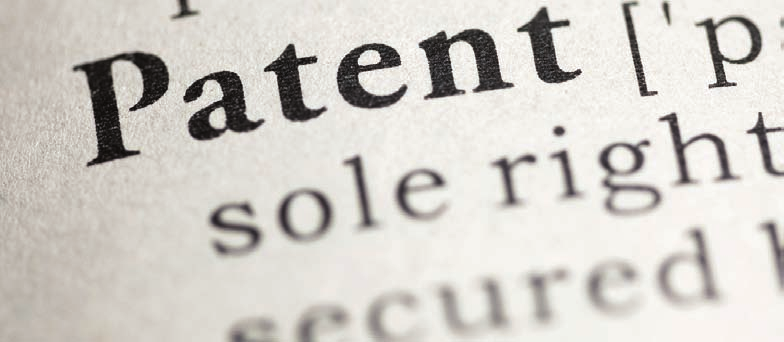
Landmark Judgment Interpreting Summary Judgment provisions applicable to Commercial Disputes
The Division Bench of the Delhi High Court, in the case of Bright Enterprises Private Limited & Anr. v. MJ Bizcraft LLP & Anr., has recently passed a landmark judgment that discusses and interprets the provisions relating to “Summary Judgment” as contained in the Code of Civil Procedure, 1908, as amended (“CPC”). While interpreting the said provision, the Hon’ble Division Bench set aside the order dated 08 August 2016 of the learned Single Judge, by which the Suit filed by the Plaintiffs was dismissed in limine. By way of a small background, provisions relating to Summary Judgment are contained in Order XIII-A of the CPC, and were introduced by the Commercial Courts, Commercial Division and Commercial Appellate Division of High Courts Act, 2015 (“Commercial Courts Act”). Order XIII-A of the CPC sets out the procedure by which Courts can decide a claim arising in a “Commercial Dispute”, without recording oral evidence. It, therefore, immediately follows that the said Order is only applicable for disputes covered under the Commercial Courts Act. In other words, a suit has to be a Commercial Suit for the Summary Judgment provisions under Order XIII-A to apply.
As per Order XIII-A, Summary Judgment can be passed by Courts on a claim pertaining to a Commercial Suit. The term “claim” has been defined to include (i) part of a Claim; (ii) any particular question on which claim (whether whole or part) depends or (iii) a counterclaim. Order XIII-A Rule 1(3) makes it clear that the Summary Judgment provisions shall not apply to a Commercial Suit originally filed as a summary suit under Order XXXVII of the CPC. Under Order XIII-A Rule 3, the Court can give Summary Judgment either in favour of the Plaintiff or the Defendant on the ground, inter alia, that the Plaintiff has no real prospect of succeeding on the claim or that the Defendant has no real prospect in successfully defending the claim, as the case may be. However, the said Order makes it clear that (a) a Summary Judgement can only be made upon an application being made by a party, (b) such an application can only be made after service of summons, and (c) such an application must be made before issues are framed.
Coming to the facts, the Plaintiffs had instituted a Suit for, inter alia, infringement and passing-off against the Defendants, seeking to restrain the latter from using the trade mark ‘PRIVEE’ in respect of their business activities of operating a nightclub, whereas the Plaintiff was using the trade mark ‘PRIVE’ for a luxury wing of rooms in its hotel Radisson Blue MBD Hotel. The learned Single Judge dismissed the Suit in limine on the ground, inter alia, that the Plaintiffs were not able to establish a prima facie case in their favour. While dismissing the Suit, the learned Single Judge relied on the provisions of the Commercial Courts Act and concluded that since the Plaintiffs had filed the Suit as a “Commercial Suit”, the same could be summarily dismissed. The learned Single Judge also commented on the fact that owing to “docket explosion”, the Courts had to weed out cases where the plaint does not establish a case in favour of a Plaintiff.
Aggrieved by the dismissal of the Suit in limine, the Plaintiff filed an appeal before the Division Bench of the Delhi High Court. While the Plaintiff essentially argued that Order XIII-A mandates, at the very least, the filing of an application for Summary Judgment, the Defendants averred that Order XIII-A Rule 3 gave the Court the powers to suo moto dismiss a Suit in a summary manner. Rejecting the averments of the Defendants, the Hon’ble Division Bench set aside the order of the learned Single Judge. The Hon’ble Division Bench considered the key question of whether the Court has discretion to issue summons, given that the Suit was admittedly instituted in accordance with law. After examining certain key provisions of the CPC, the Hon’ble Division Bench held that where a suit has been “duly instituted”, summons have to be issued to a defendant, unless of course the suit is barred by the provisions of Orders VII Rule 10 (return of plaint) or Order VII Rule 11 (rejection of plaint) of the CPC. The Hon’ble Division Bench observed that the learned Single Judge had neither returned the plaint nor rejected the plaint and, therefore, it was incumbent on the learned Single Judge to have issued summons on the Defendants. The Court also noted that there is a distinct difference between ‘return of plaint’, ‘rejection of a plaint’ and ‘summary dismissal of a suit’.
As regards the interpretation to Order XIIIA CPC, the Hon’ble Division Bench held that the provision of Summary Judgment can only be exercised upon an application being made, and that too, only after the issuance of summons, but before framing of issues. The Court also rejected the argument of the Defendants that the Court has suo moto powers to deliver Summary Judgment without there being an application in that regard. In support of its finding that an application for Summary Judgment is mandatory, the Court recognized the following features of an application for Summary Judgment, (i) the time-frame within which such application must be made; (ii) the contents of such application and (iii) the contents of a reply to such application,.
While opining that proceedings before a Court are adversarial in nature, the Hon’ble Division Bench also observed that a Summary Judgment cannot be rendered merely upon inquisition by the Court, i.e., in the absence of an ‘adversary’.
This decision of the Hon’ble Division Bench certainly provides clarity on the applicability of the Summary Judgment provisions as contained in the CPC. There can be no doubt that the provisions relating to Summary Judgment in the CPC are an extremely useful tool in ensuring that Commercial Suits are disposed off efficiently and quickly, without unnecessary delay. It will be extremely interesting to observe how the Summary Judgment provisions are now applied and interpreted by Courts in India, especially in view of this judgment of the Hon’ble Division Bench.
Recent Posts

Condition Precedent and Condition Subsequent under the Indian Contract Act, 1872
Jan 2019

Conceptual Similarity of Trade Marks: The Indian Position
Nov 2018

Decoding the ‘Myth’ behind the 2-Part Claim Drafting Format in the context of the Koniklijke Philips’ Case
Oct 2018